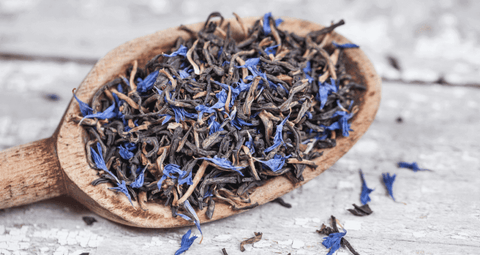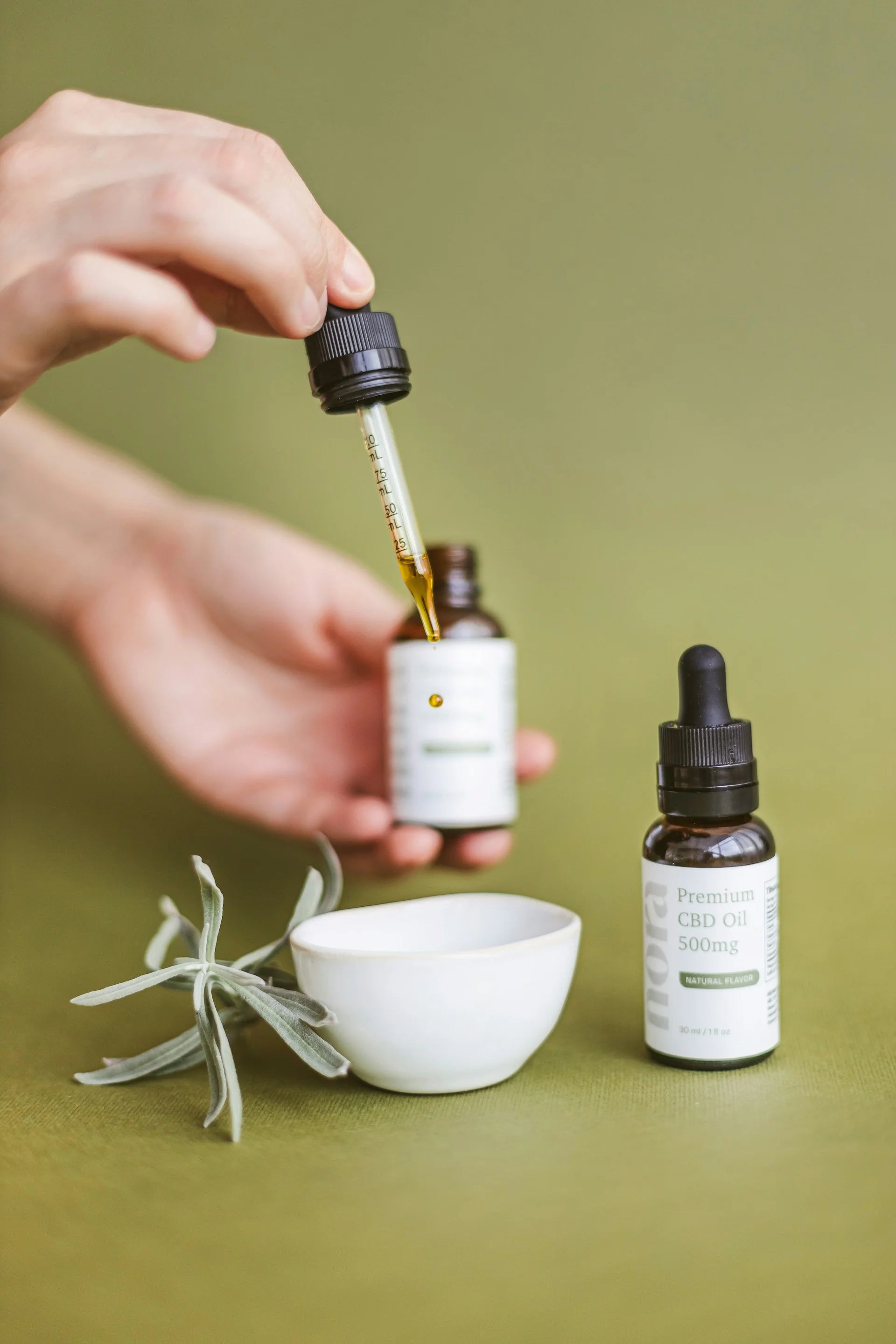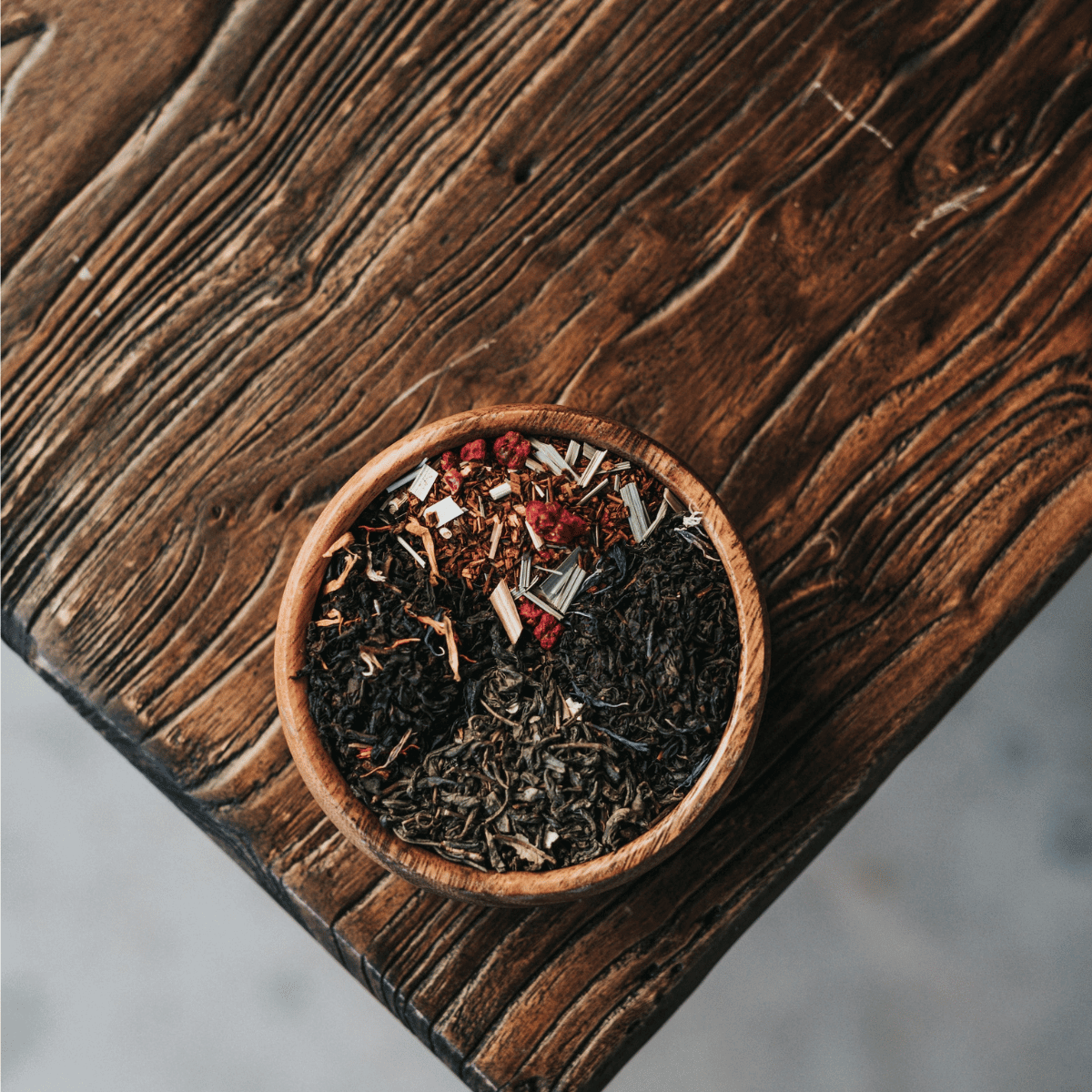Can I smoke bergamot?
Bergamot is a sweet citrus fruit that grows in a family of citrus fruits called Citrus bergamia. It's mostly grown in Italy and Spain, but there are other places around the globe that also grow the Bergamot tree. The flavoring of bergamot is used in many fruit syrups and candy products across the world. The most common place it's found is in Earl Grey Tea.

Bergamot, also known as yellow mandarin, is native to Italy. It has a fruity-floral scent with a hint of citrus and is one of the most popular essential oils for its potential skincare benefits. The aroma of bergamot is enjoyed in food, perfumes and cosmetics.
If you're new to vaping or smoking and wondering if it's possible to smoke bergamot, then keep reading! Whether or not you can actually smoke bergamot is a question that often comes up in and we've answered it here.
What is bergamot?
Bergamot is a citrus fruit, grown in Italy and Spain. The oil is intensely fragrant, with notes of orange and lemon.
The bergamot tree originated in the Mediterranean region, where it was first cultivated by the Greeks. Bergamot oil has been used for centuries to flavor food and sometimes in medicines. Its essential oil has a light, sweet scent and is used as a perfume, in phthalate-free candles and for flavoring in foods. Some internet forums also say it has antibacterial properties and calming effects on the central nervous system. However, no scientific research can confirm any of those claims yet.
The fruit of the bergamot tree is small and greenish-yellow when ripe, but turns a deep orange when fully mature.
Where does it come from?
Bergamot is a citrus tree native to the Mediterranean region. It was first cultivated in Greece in the early 16th century and is now cultivated in many other countries around the world.
Named after the Turkish word "beg-armudi," which translates to "The Prince's Pear," Bergamot has long been regarded as one of the finest and most exotic citrus notes. It is used in everything from Earl Grey tea flavoring to essential oil scent. Fun fact, Aristocrats of King Louis XIV's court in France used bergamot ("prince's pear")-scented perfumes long before the rest of the world caught on.

What are the general uses of this plant?
- Today, bergamot flavoring is commonly used in food and beverages, as well as in cosmetics like skin creams, bubble baths, and shower gels, as well as in aromatherapy.
- It was also used in traditional treatments in Renaissance Europe, where it was considered to have fever-reducing effects. A little disclaimer to reiterate that no scientific studies can prove that benefit yet.
- To mask the smell of their own body odour, wealthy people of society would frequently hang a pomander from their necks that was richly perfumed with bergamot notes. This was done so that others would not be able to tell that they had a smelly body.
- The essential oil of bergamot is used as a scent diffuser just like sandalwood and cedarwood.
What kind of herb is bergamot?
Bergamot is either the fruit of the bergamot orange (Citrus aurantium) or one of the numerous aromatic herbs that are members of the genus Monarda (Lamiaceae family). The bergamot orange and the bergamot herbs both have a flowery scent that is often used in perfumes and as a flavoring ingredient.

Perennial bergamot herbs are native to North America and widely cultivated as ornamentals to attract pollinators, butterflies, and hummingbirds. It is used to flavour punches, lemonades, and other cold beverages. In addition, lemon bergamot, also known as lemon bee balm (M. citriodora), and wild bergamot (M. fistulosa) are used as flavoring herbs and in teas.
Bergamot oranges are mostly grown in Italy, where Earl Grey tea is popularly served. For its essential oil, the peel of a yellow-green pear-shaped fruit from the tree is sought after by the flavor and perfume industries.
Can bergamot be smoked?
A common question about this bergamot herb is whether or not it can be smoked. The answer is yes! Smoking bergamot is considered an expectorant and can be added to your favorite legal herb or your next herbal smoking blend.
However, there are some precautions you should take before smoking any herb. Many people think that all herbs can be smoked and that they'll get the same effects from smoking marijuana or hashish as they do from smoking tobacco. This isn't true at all! The active ingredients in the majority of herbs are different from those in tobacco and marijuana, so herbal smoking won't deliver the same effects as traditional smoking methods do.
With that said, you can totally add some bergamot dried herb the next time you roll a spliff to enjoy an interesting citrusy note.
How do you smoke bergamot?
Bergamot is a citrus fruit that can be smoked in a bong, a pipe, or just in a joint but it has a very strong flavor.
It can be combined with other herbs and spices to make your own unique smoking experience. You can try mixing it with other herbs to see what you like best.
There are many different ways to smoke bergamot, depending on your taste and what kind of herb you want to use. You can make your own herbal smoking blends with these base herbs and flavoring herbs to enjoy a light smoke:
- peppermint
- spearmint
- skullcap
- uva-ursi / kinnikinnick
- willow bark
- hyssop
- white sage
- st. john’s wort
- mugwort
- mullein
- rose petals
- lemon balm
You can also checkout these herbs as great alternatives to smoking tobacco. You can easily store them in a tightly packed glass jar when all mixed together.
What happens when you smoke bergamot?
Some people say smoking bergamot gives you an immediate effect on your body — and a lingering effect on your mind. It's said that smoking bergamot can help relieve stress and anxiety while also improving focus and concentration.
However, we do need to reiterate our disclaimer for the billionth time and really drive home the point that smoking herbs of any kind carry inherent health risks, such as long-term lung damage. So if you must absolutely smoke herb leaves, or even smoke flower petals, always do your research and do so in moderation.
Bergamot essential oil vs smoking bergamot
Bergamot essential oil is a citrus fruit. It's very popular in aromatherapy, and it can be used as a natural way to get rid of bad breath. It's also used for its fruity smell, which makes it a great ingredient for perfumes and colognes.

Photo by RODNAE Productions
Smoking bergamot has a different effect on the body than bergamot essential oil does. Smoking bergamot might help with nausea, vomiting, headaches, depression, and anxiety. It's also believed to help people who are recovering from drug addiction or alcohol addiction because of its energizing effects on the body. Smoking bergamot is not recommended for pregnant women or people with high blood pressure because they may experience tremors or heart palpitations while using this product.
Here again, no peer-reviewed research has been conducted to prove any of those unsubstantial claims. Always be careful of charlatans who try to sell you smokable products that are “good for you”.
What are the risks of smoking bergamot?
Is it safe to smoke bergamot?
As with any other herb, smoking anything can be harmful to your health. So basically no, it is not safe to smoke bergamot.
The trace levels of bergamot oil that are typically present in foods are thought to be safe for consumption by the vast majority of individuals. Topical use is not recommended due to the possibility of increased skin sensitivity and risk of skin cancer. When someone works with bergamot, they run the risk of developing skin issues such as blisters, scabs, pigment spots, rashes, and even malignant alterations in their skin.
Can smoking bergamot help you quit tobacco?
The research on using bergamot as an alternative to quitting tobacco is relatively new and needs more study. However, there are some studies that suggest that using bergamot could help you quit by helping you avoid cravings for cigarettes.
However, as recreational smokers are trying to steer away from tobacco and find natural alternatives to roll their spliffs, butterfly pea and other popular smokable herbs like calendula, marjoram, oregano, rosemary and even coltsfoot have seen their popularity increase significantly.
Conclusion - Can I smoke bergamot?
Bergamot is certainly a useful botanical ingredient in perfumes, but there are some drawbacks to smoking bergamot; it can be toxic and may present some health concerns.
As a result, it is imperative that you do your research before choosing which herbs to use in your herbal smoking mixes. While some plants have a long history of safe usage, some may cause irritation or have other side effects, so be sure to do your research before smoking anything.
*This article is not to be interpreted as a statement of any form by Spliff but merely a compendium of information compiled from other sources. These statements have not been evaluated by Health Canada, FDA or any other regulatory body. Consult your doctor before ingesting or smoking any herbal product.*
WANNA LEARN MORE ABOUT BERGAMOT? BROWSE OUR SOURCES BELOW!
Arslan Işık, N. (2020). Aromatherapy and Quitting Smoking. Galician Medical Journal, 27(2), E202022. https://doi.org/10.21802/gmj.2020.2.2
Mollace, V., Scicchitano, M., Paone, S., Casale, F., Calandruccio, C., Gliozzi, M., Musolino, V., Carresi, C., Maiuolo, J., Nucera, S., Riva, A., Allegrini, P., Ronchi, M., Petrangolini, G., & Bombardelli, E. (2019). Hypoglycemic and Hypolipemic Effects of a New Lecithin Formulation of Bergamot Polyphenolic Fraction: A Double Blind, Randomized, Placebo- Controlled Study. Endocrine, Metabolic & Immune Disorders - Drug Targets, 19(2), 136–143. https://doi.org/10.2174/1871530319666181203151513
Mollace, V., Malara, N., Gratteri, S., Palma, E., Zappia, L., Costa, N., Rosano, G., & Paone, S. (2016). Bergamot polyphenolic fraction counteracts erectile dysfunction occurring in patients suffering from type 2 diabetes. PharmaNutrition, 4, S41–S46. https://doi.org/10.1016/j.phanu.2015.11.006
Bagetta, G., Morrone, L. A., Rombolà, L., Amantea, D., Russo, R., Berliocchi, L., Sakurada, S., Sakurada, T., Rotiroti, D., & Corasaniti, M. T. (2010). Neuropharmacology of the essential oil of bergamot. Fitoterapia, 81(6), 453–461. https://doi.org/10.1016/j.fitote.2010.01.013
Giglio, R. V., Patti, A. M., Nikolic, D., Li Volti, G., Al-Rasadi, K., Katsiki, N., Mikhailidis, D. P., Montalto, G., Ivanova, E., Orekhov, A. N., & Rizzo, M. (2016). The effect of bergamot on dyslipidemia. Phytomedicine, 23(11), 1175–1181. https://doi.org/10.1016/j.phymed.2015.12.005
Mandalari, G., Bennett, R. N., Bisignano, G., Trombetta, D., Saija, A., Faulds, C. B., Gasson, M. J., & Narbad, A. (2007). Antimicrobial activity of flavonoids extracted from bergamot (Citrus bergamia Risso) peel, a byproduct of the essential oil industry. Journal of Applied Microbiology, 103(6), 2056–2064. https://doi.org/10.1111/j.1365-2672.2007.03456.x
Weisenseel P, Woitalla S. [Toxic mustard plaster dematitis and phototoxic dematitis after application of bergamot oil]. MMW Fortschritte der Medizin. 2005 Dec;147(51-52):53, 55. PMID: 16402711.
Berliocchi, L., Ciociaro, A., Russo, R., Cassiano, M. G. V., Blandini, F., Rotiroti, D., Morrone, L. A., & Corasaniti, M. T. (2011). Toxic profile of bergamot essential oil on survival and proliferation of SH-SY5Y neuroblastoma cells. Food and Chemical Toxicology, 49(11), 2780–2792. https://doi.org/10.1016/j.fct.2011.08.017







Leave a comment
All comments are moderated before being published.
This site is protected by reCAPTCHA and the Google Privacy Policy and Terms of Service apply.